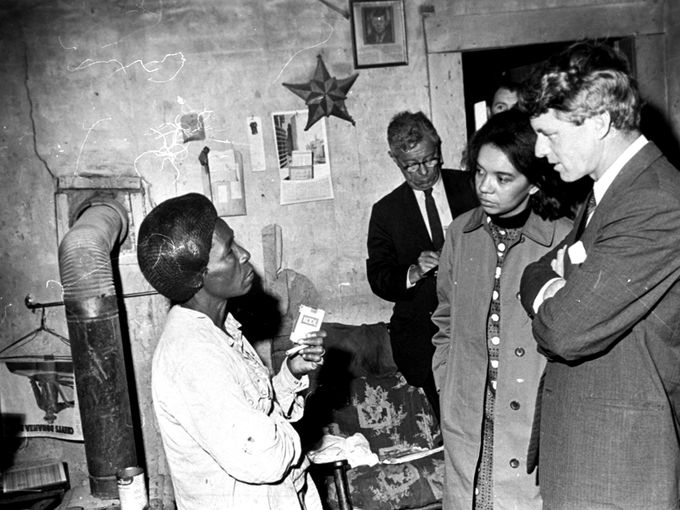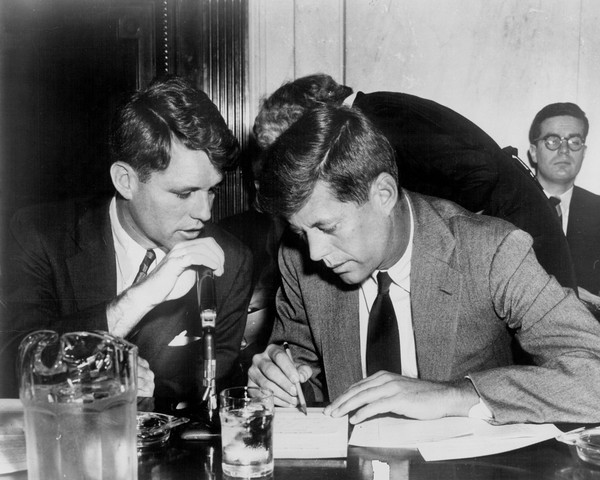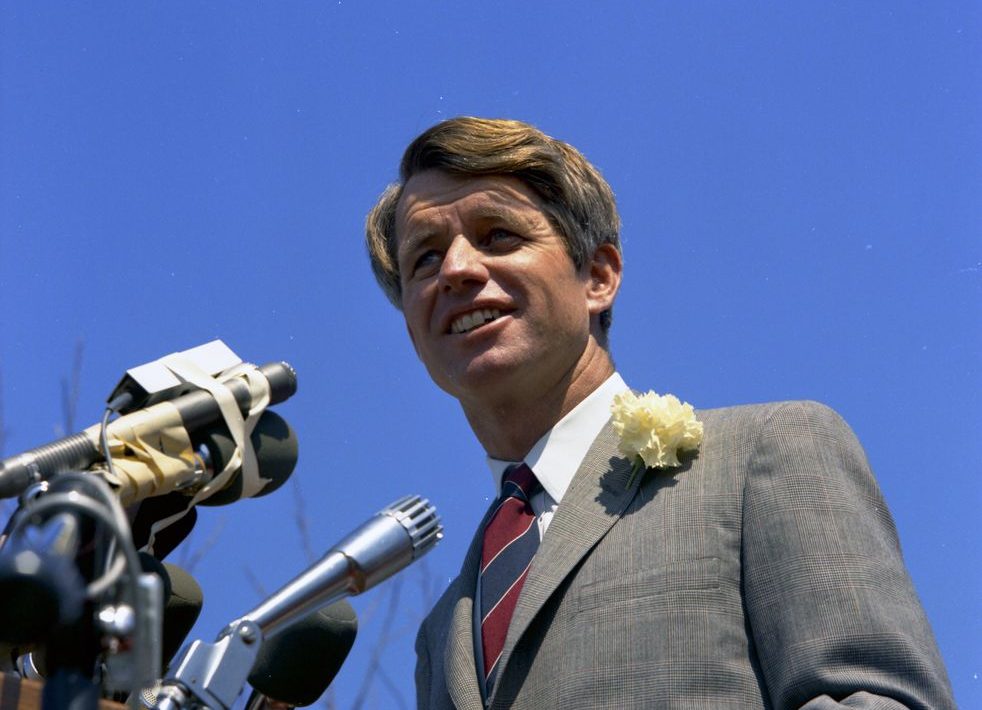Bobby wanted to change and he wanted it now.
Robert F. Kennedy was a visionary. He recognized the faults in the American political system and drastically wanted to change them in order for his children, their children and so on to have a brighter future. He interpreted the world in his own special way. In order to commemorate the 50th anniversary of his campaign and death, Netflix has released the four-part documentary series, Bobby Kennedy for President, which shows the journey of Robert as he moves from being a neutral politician to one of the most progressive of his time.
Within the last few months, I’ve dove into the captivating world of the Kennedys. Naturally, I began with John F. Kennedy who became the 35th President of the United States. Only recently had I taken a closer look into Robert’s work behind the scenes as his brother’s campaign manager, as attorney general, as a senator and in his own venture into presidential politics.
For once, it was refreshing to see the work that Robert did behind the scenes of JFK’s presidency. The Cuban Missile Crisis, the Alabama school integration, and the release of Martin Luther King from prison were all shown from Robert’s perspective as he had huge parts to play in each.
Informally known as Bobby, throughout his time as attorney general, his views on certain issues changed and in-turn he insured his brother also understood that development in the American ideal needed to happen. He was able to persuade his brother to think and act morally despite what the retribution may be. This growth was definitely a stepping stone for American politics.
Moving forward, the docu-series sheds a light on all of the more “underrated” moments of Bobby’s career during his time as New York’s senator. From being one of the first politicians to visit poorer places throughout the United States to switching his tone towards Vietnam despite his earlier hesitation. Bobby wanted to change and he wanted it now.

One of the riskiest moves as a politician at the time was visiting the ghettos in the Mississippi Delta. Unemployment, poverty and lack of proper education ran rapidly throughout the region. Children’s bellies were distended from malnutrition as mothers had no way to feed them.
Visiting such a poverty-stricken area in the heart of one of the richest countries in the world was heartbreaking for Bobby. You could feel that he was extremely sympathetic when he was visiting these places and knew that he was ultimately going to do something about it. It hurt him severely to see people unable to feed their own children. How could a country that’s on the economic rise have people struggling to survive? Bobby wanted to fix that.
Bobby made it his mission after Jack’s death to pursue the dreams of a better America that they shared. When D.A. Pennebaker was discussing his short-film, Jingle Bells, that followed Kennedy and his children to several New York City schools as they sang Christmas carols during his campaign for Senator. At one point, Bobby suddenly stopped smiling: “I’m filming Kennedy and his eyes kind of glaze over and I thought, ‘He’s thinking about Jack.’”
After Jack’s death, Bobby went into an extremely depressive state. This was a huge factor in his run for the presidency. Not only would he be going against the sitting president, Lyndon B. Johnson, but he also continuously struggled with the result of his brother’s demise. Although Bobby debated endlessly with himself whether or not to run, he had come to accept he would face the same fate that his brother went through. This was especially so with how vocal he had become on certain issues including civil rights and fighting organized crime.

His acceptance of death was so apparent that when he was inevitably shot, but remained on the floor conscious, one of his friends said he had, “an accepting look in his face like he knew what had happened.” What his friends and family feared the most had become reality. Another Kennedy with America’s hopes and dreams was killed due to gun violence.
Thousands of people lined up to watch the funeral train pass through their cities two days after his death. No one had expected the number of people to turn up. Michael Devorkin, a campaign worker for Bobby said it best, “People were on the train tracks, hanging from the rafters. Nobody had any clue what kind of reaction there was going to be. People inside the train were all so overwhelmed by the response of average people. The people that were out there, that was the campaign.”
The train was put in place to carry Bobby’s body from New York to Washington to be buried at Arlington National Cemetery, right by his brother. Two men who once tried to bring change to the United States, back together again for eternity.
Although the final episode focused too much on conspiracy theories and Bobby’s killer, Sirhan Sirhan, the ending pained me more than I expected. The Robert F. Kennedy Community Schools now take the place of the Ambassador Hotel, where he was shot almost 50 years ago. His closest allies, friends and of course his wife Ethel have all made it their mission to keep his story alive through the humanitarian lifestyles they now live.
The most fascinating revelation when watching the near four hours of archival footage is the hundreds of thousands of people always trying to reach out and touch Bobby. While touring different neighbourhoods during his campaign he would lose shoes, cufflinks, have parts of his clothing torn off because of the calmness he gave off. Numerous times his hands would be bleeding after spending long hours shaking hands, only to show up late due to slow-moving motorcades. Bobby was known as a relentless politician, but to the American people, he had become a compassionate man that they trusted would lead them to a better country.
Not only did the director, Dawn Porter do a stunning job incorporating as much archival footage as possible, but his family and friends have been fantastic in preserving his legacy for the future. Bobby never wanted to only see a change in the present, but a longing change that we’d be able to see in future generations to come.
To end with Ulysses by Alfred Lord Tennyson just as Bobby Kennedy for President does, “The lights begin to twinkle from the rocks; The long day wanes; the slow moon climbs; the deep Moans round with many voices. Come, my friends, ’tis not too late to seek a newer world.”

